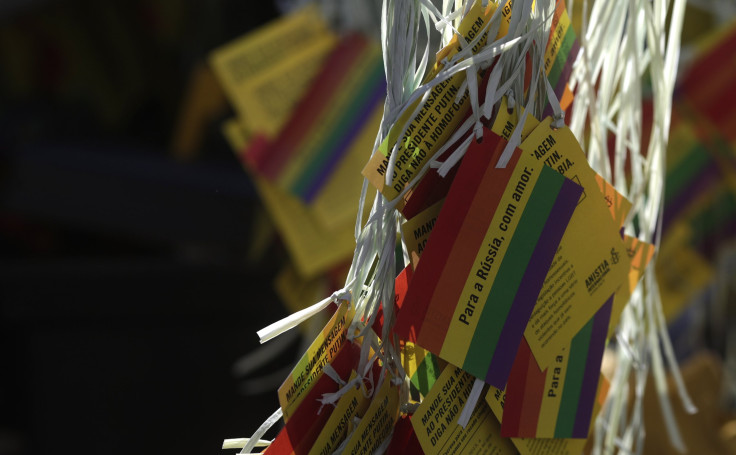Queerussia Founder Ruslan Porshnev Discusses LGBT Issues In The Russian Media

Ruslan Porshnev, founder and editor-in-chief of Queerussia.info, a live aggregator of LGBT-related news, spoke with IBTimes about the purpose of Queerussia and the difficulty in getting the word out about queer issues in his country.
The aggregator is especially timely, with Russian LGBT issues grabbing wordwide attention because of the 2014 Sochi Olympics. The 2014 games have been marked by protests, international denunciations and some bizarre claims about gay life and rights in Russia.
Because of government pressure and the current climate of fear around LGBT issues in Russia, outsiders can have difficulty finding reliable coverage of the issues. Porshnev founded Queerussia.info to fill that gap in coverage by aggregating news in real time from around the country and from a variety of outlets.
Queerussia started in 2011 as an independent mailing list to connect people and share information, but didn't evolve into the English-language aggregator it is now until late 2013. Not only does Queerussia now connect people, it also serves as a portal for anyone interested in queer issues in Russia.
"Queerussia brings together Russian and Western LGBTQ activists, bloggers, journalists and concerned citizens who want to know more about queer issues in Russia, progress on LGBTQ rights, queer activism, public events, advocacy, homophobia, etc." says Porshnev. "Since 2011 both sides of the dialogue have been able to see and enjoy growing mutual understanding on many complex issues."
It’s a risky venture in a country where speaking out about LGBTQ issues can land you in legal trouble and much worse. Porshnev says in his own words:
“Many LGBTQ news from Russia do not make it to the mainstream Western LGBT and non-LGBT media due to a number of reasons. Sometimes they do not comply with a certain editorial agenda. More often, independent activists and grassroots groups, especially new ones, do not have sufficient resources to set up efficient communications with colleagues abroad. Needless to say, they do not get coverage in Russian media as well. They are left unheard and drop out of the big picture. Also, inside Russia, different organizations, groups and individuals have diverse, sometimes even opposite takes on tackling common issues, so they do not necessarily tend to cover, adopt or approve of each other’s achievements, breakthroughs or best practices.
But keeping focus only on the loudest voices and brightest lights today, with antigay laws passed in Russia, is an unaffordable luxury now. It only helps to build up a monopoly on the information flow from Russia abroad, and we’ve seen grave consequences of it in the recent time.
So, let a hundred flowers bloom."
© Copyright IBTimes 2024. All rights reserved.






















